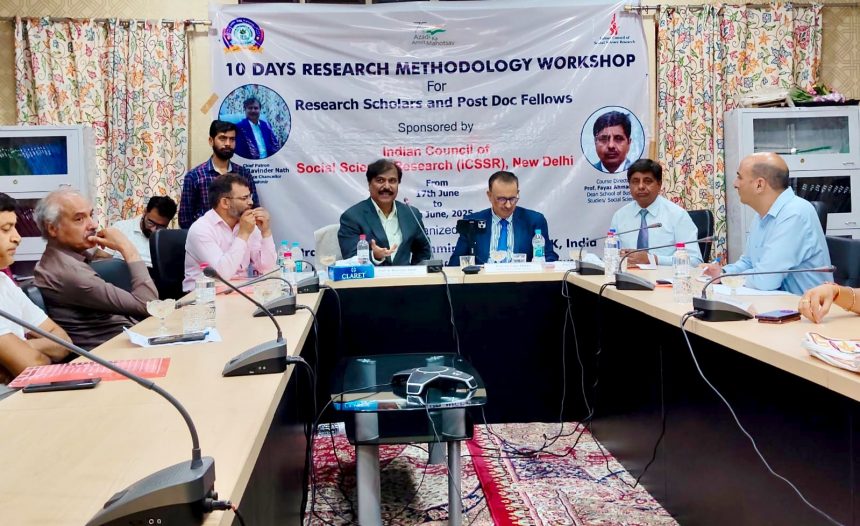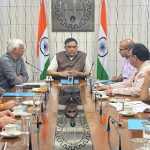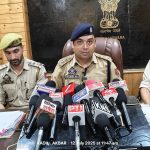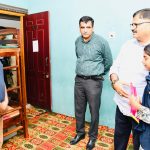Ganderbal, June 17: Central University of Kashmir (CUKashmir) in association with the Indian Council of Social Science Research (ICSSR), New Delhi, kick-started 10-days Research Methodology Workshop for the research scholars and post-doc fellows at varsity’s Green Campus here Tuesday.
In his Presidential address, CUKashmir Vice-Chancellor, Prof. A Ravinder Nath, asked the participants to remain abreast and updated with the digital technological advancements to conduct successful research. “A digitally savvy researcher in the field of Social Sciences is a catalyst for progress who can navigate ethical challenges, uphold research integrity, and contribute to the society,” Prof. A Ravinder Nath said. He said Social Science research plays a huge role in sustaining and improving the quality of life by exploring the complexities of human behaviour, society, and institutions. “It helps policymakers design informed and inclusive strategies in the areas of critical importance,” Prof. A Ravinder Nath further said. The CUKashmir Vice-Chancellor underlined the critical role of research methodology in shaping high-quality research output. “Without a sound methodological framework, even the most insightful research can lose its value,” he remarked. He emphasized the growing need for methodological innovation in an era marked by interdisciplinary convergence, big data, and global challenges.
In his keynote address, Padma Shri, Prof. Amitabh Mattoo deliberated on the topic “Between Curiosity and Craft: On Theory, Method, and Responsibility in a Disrupted World” and said, “Methodology is also about intellectual honesty. It requires you to interrogate the boundaries between the observer and the observed, the subject and the scholar.” Prof. Mattoo said,
Deliberating upon the “Method: The Tool,” Prof. Mattoo said, “Even the most sophisticated tool is useless without a good question. Methods must not be chosen for their novelty or popularity, but for their fit. A semi-structured interview may yield rich qualitative data on lived experiences, but it cannot tell you how many people feel that way. Conversely, a survey may map patterns but miss underlying meanings.” Talking about the “Research in an Age of Simulation,” he said “Today, we confront a new challenge: the simulation of scholarship. AI-generated essays, paper mills, automated citations—these tempt many into shortcuts. But let me say this clearly: there is no substitute for the disciplined, reflective labour of scholarship. In the long run, tools cannot replace thinking. Models cannot replace methods. Technology cannot replace judgment. Research remains a human act—full of uncertainty, emotion, revision, and discovery. Do not allow a machine to flatten your voice. Let your questions emerge from lived experience, careful reading, and ethical ambition.”
Course Director and Dean School of Business Studies, Prof. Fayaz Ahmad Nikka in his address, traced the history of several medical researchers in Kashmir who played a pivotal role in treating the diseases of people.








